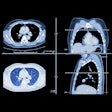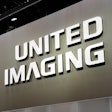BOSTON - Advocates of virtual colonoscopy were forced to regroup following the May 2009 denial of national coverage for colon cancer screening. But the soul-searching seems to have paid off: 2010 has stood in stark contrast as a year of fierce determination to make reimbursement a reality.
At the 2010 International Symposium on Virtual Colonoscopy, proponents of VC (also known as CT colonography or CTC) unveiled a multipronged strategy to win payment for CTC screening in the U.S. -- and a new attitude about the prospects for including VC as a covered exam for people 50 years and older.
Plans include a new push for legislation in Congress, a new legal strategy to sidestep the May 2009 denial of coverage by the U.S. Centers for Medicare and Medicaid Services (CMS), a state-by-state push for payments, and myriad research initiatives to respond to research shortcomings identified by CMS and other U.S. agencies.
"The big news this year is that CTC has now clearly moved from the realm of medicine and science to the realm of politics," said Joseph Ferrucci, MD, program chair and professor of radiology at the University of Massachusetts in Boston.
After all, he said, this was the year in which President Barack Obama opted for VC over conventional optical colonoscopy, avoiding the need for sedation that comes with endoscopy, as well as the need for a temporary transfer of his executive powers to Vice President Joe Biden.
"On that day everything changed, because what the CMS folks took away last year, Obama gave us back this year: namely, credibility, and maybe more importantly an obligation -- as in, if it's good enough for him, it's good enough for all of us," Ferrucci said in his opening remarks.
2009 denial
In May 2009, CMS denied reimbursement for screening CTC, citing shortcomings in evidence on the efficacy of CTC related to:
- Extracolonic findings
- Radiation dose
- Performance in a Medicare population
That move has prompted the VC community to swing into action, with the American College of Radiology's (ACR) colon cancer committee in the lead, according to Judy Yee, MD, professor and vice chair of radiology at the University of California, San Francisco.
The committee, made up of VC luminaries who were mostly in attendance at this week's Boston symposium, has been working with several organizations including CMS, the U.S. Preventive Services Task Force (USPSTF), and the U.S. Department of Health and Human Services (HHS), "which is above the CMS and can override the CMS decision" to deny screening reimbursement she said.
In response to the denial of coverage, ACR's colon cancer committee met with HHS in June to explore an alternate route for CTC reimbursement via a process known as coverage with evidence development (CED).
"At the time, it wasn't known if this was legal for us to pursue, and we have [since] obtained outside legal opinion" to the effect that the organization does have the standing to pursue the CED option, Yee said.
Following that meeting, however, HHS said it wants additional evidence, in particular to address the performance of virtual colonoscopy in a Medicare population. That information is now being accumulated, Yee said.
Several papers are in the works, according to Yee. Kim and colleagues recently published a paper on CTC in a Medicare population, and the results of the National CT Colonography Trial (ACRIN 6664), which is specifically examining CTC in the Medicare-aged subset of its cohort, are expected to be published in early 2011.
Key ACR publications already in print also include a 2009 white paper on the status of CTC (McFarland et al, Journal of the American College of Radiology (JACR), November 2009, Vol. 6:11, pp. 756-772).
Another key publication is the ACR's 2010 appropriateness criteria for screening (Yee et al, JACR, September 2010, Vol. 7:9, pp. 670-678), as well as a white paper on managing incidental findings at CTC (Berland et al, JACR, October 2010, Vol. 7:10, pp. 754-773).
"The conclusion is that using state-of-the-art techniques, CTC should be included in all the guidelines as a front-line option for screening," Yee said.
New alliances
The ACR has also teamed with the American Gastroenterological Association, the Colon Cancer Alliance, the Medical Imaging and Technology Alliance, and other members of industry to continue to advocate for coverage. Activities include Capitol Hill lobbying efforts, ongoing meetings with HHS staff, and CTC media advocacy efforts, Yee said.
"Other ACR actions include our continued work with private payors as we help them to modify and expand their policies to include both diagnostic and screening CTC," Yee said. An ACR webinar was held for some of the larger private payors.
Since last year, in fact, the number of payors that offer coverage of diagnostic and screening CTC has grown dramatically. According to Yee, the list now includes:
- Cigna
- UnitedHealthcare
- Anthem Blue Cross/Blue Shield (BC/BS)
- Arkansas BC/BS
- CareFirst BC/BS
- Georgia BC/BS
- Empire BC/BS
- North Carolina BC/BS
- Independence BC
- Texas BC/BS
On the legislative front, there is the Virtual Screening for Colorectal Cancer Act (HR 5461). Introduced in May, the bill would amend the Social Security Act to cover CTC as a colorectal cancer screening test under Medicare. On hold for now, the legislation has gained several new co-sponsors on both sides of the aisle, and the plan is to reintroduce the bill in early 2011, Yee said.
Increased reimbursement
In August, CMS convened a refinement panel requested by the members of the colon cancer committee to request an increase in the assigned relative value units (RVUs) from 2.28 to 2.40 for one of CTC's reimbursement codes, CPT 74261, which covers diagnostic (as opposed to screening) CTC without contrast.
"Three CPT codes were issued in January: two for diagnostic CTC and one for screening," Yee said. "The RVU for diagnostic CTC [2.28] without contrast is the same as the RVU for screening CTC."
In their meeting with CMS, Yee and fellow committee member Elizabeth McFarland, MD, from the Center for Diagnostic Imaging in St. Louis, argued that more physician time is needed to perform diagnostic CTC, the examination is more complex and more intense, and there is a need to maintain relativity with regard to other assigned RVU values. CMS will publish its decision next month, and "we think we will be successful in reversing this," Yee said.
More aggressive approach to states
The ACR is taking a harder line this year with states that have effectively legislated a CTC screening requirement on health insurers by following American Cancer Society (ACS) guidelines, but have failed to enforce them, allowing insurers in these states to continue to offer policies that do not cover CTC.
"We are approaching those states that mandate coverage of colorectal cancer screening according to American Cancer Society guidelines," Yee said. Current information on state-by-state screening coverage is available from the ACR by clicking here.
Members of the ACR colon cancer committee are also working with ACR state chapter leaders, local CTC "champions," and patient advocates to approach insurance commissioners and private payors to help get existing laws enforced, and advocate for broader coverage of CTC screening at the state level, Yee said. States with strong advocates in the CTC community will be challenged first, she said.
Currently, 19 states and the District of Columbia follow American Cancer Society guidelines for screening, which include screening virtual colonoscopy: Alabama, Arkansas, Georgia, Illinois, Indiana, Kentucky, Louisiana, Maryland, Minnesota, Missouri, Nevada, New Jersey, North Carolina, Oregon, Pennsylvania, Rhode Island, Tennessee, Virginia, and Wisconsin.
"We would love to involve as many of you who are interested as possible," Yee said. "Our purpose is not only to advocate for state-level coverage but also to improve private-payor coverage at the state level."
The ACR has made available to providers a resource packet (contact Kathryn Keysor: 703-648-8900 ext. 4950) that includes recent guidelines and position statements, including:
- ACR 2009 practice guidelines
- ACS-USPSTF-ACR 2008 guidelines
- ACR 2010 appropriateness criteria
- Health Physics Society 2010 position statement on radiation risk
A 14-page rebuttal letter that responds to the CMS coverage denial in detail is also available, along with detailed information on individual state laws, Yee said.
National Radiology Data Registry
The ACR's National Radiology Data Registry, which opened in 2008, now has more than 3,000 CTC cases available for review and research (it can be reached by clicking here). According to its Web site, the registry offers evidence-based health outcomes and process data for decision-making by VC providers, enabling facilities to compare their own results to regional and national benchmarks for quality improvement.
Patient advocacy
The ACR has also increased its collaboration with the Colon Cancer Alliance, which is the largest patient-advocacy group for colorectal cancer, Yee said. With ACR support, the alliance sponsored the DC Goes Blue event earlier this month in Washington, DC, to raise awareness about colon cancer and the need for screening, Yee said.
"We continue to work with private payors to expand coverage for diagnostic CTC and also screening CTC," Yee said. "We also continue to work with HHS, CMS, and the U.S. Preventive Services Task Force."
Once the results of the National CT Colonography Trial are published, "we will request new reviews from both CMS and USPSTF, and we expect that to happen early in 2011."
Ferrucci: Skip the gastroenterologists
In his talk, Ferrucci from the University of Massachusetts recommended that VC advocates bypass trying to win over VC's arch-nemesis -- the gastroenterology community -- and instead go directly to general practitioners.
"I'd be making the case for CTC not so much to the gastroenterologists but to the family practice and family care doctors, just as we've done for screening in breast cancer," Ferrucci said. "I'd offer to speak at their meetings and write articles in their journals.
It's also time to be less deferential to gastroenterologists regarding the 6-mm polyp size threshold for referral to optical colonoscopy, Ferrucci said. The threshold should rightly be 1 cm, he said, but an 8-mm threshold -- as advocated by Ronald Summers, MD, PhD, from the National Institutes of Health -- is a reasonable compromise that would ensure that CTC detects clinically significant findings while remaining cost-effective.
Automated lesion volumes -- which are not available at endoscopy but can be obtained from CT scanners at the click of a button -- are a far more accurate measure of polyp size that should be implemented as a new standard for polyp size assessment, Ferrucci said.
"I'd go back to the issue of the advanced adenoma as the target of screening," Ferrucci said. "And I wouldn't be shy about suggesting that CTC should replace colonoscopy as the initial test for screening. There, I said it."
By Eric Barnes
AuntMinnie.com staff writer
October 26, 2010
Related Reading
CME issues sink merger between ACR, ARRS, October 25, 2010
Higher colonoscopy complication rates found in seniors, October 19, 2010
ACG to Obama: Colonoscopy better than virtual exam, March 4, 2010
VC screening maintains performance in Medicare population, November 9, 2009
JACR editorial: Medicare used double standard in VC decision, September 22, 2009
Copyright © 2010 AuntMinnie.com




















